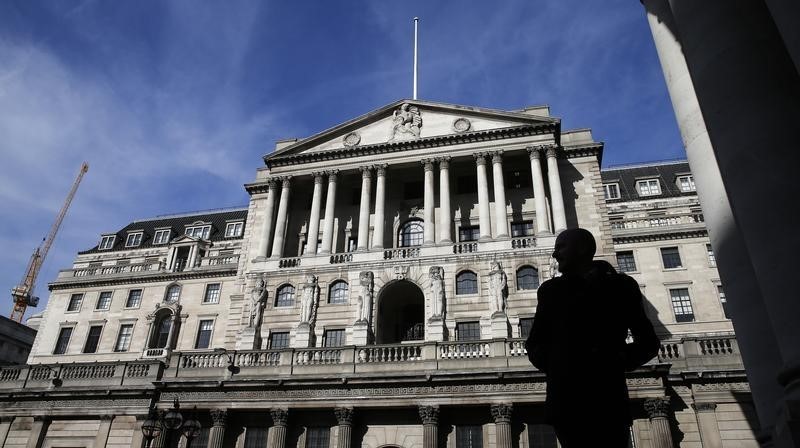By Andy Bruce
LONDON (Reuters) - The Bank of England kept interest rates at a record low once again on Thursday, as its policymakers grappled with how to balance improving wage growth in Britain against more ominous signals from the global economy.
The BoE's Monetary Policy Committee, as expected, left its Bank Rate at 0.5 percent, where it has been since the depths of the financial crisis more than six years ago, and made no statement.
The outlook for BoE interest rates hinges to a large extent on how rapidly British wage growth picks up, which was a key focus of a government budget presented by Chancellor George Osborne on Wednesday.
Osborne announced a new national minimum wage for those aged 25 and over, which some economists said could boost the chances of an interest rate hike in the coming months.
"The ... introduction of a 'living wage' may well -- given the tight labour market -- lift pay growth, especially at the bottom end of the pay scale," said Michael Saunders, chief UK economist at Citi.
"This prospect probably makes it more likely that the MPC will hike rates in the next few quarters, unless external factors, for example Greece, threaten to derail the UK recovery."
The past month has seen a renewed divergence in comments from MPC members about the risks to the outlook for British inflation, which turned positive again in May after dipping below zero for the first time in 55 years.
Martin Weale suggested he would soon vote to increase interest rates -- as he did through the second half of 2014 -- because of the swift improvement in wages. These grew at their fastest pace in nearly four years in the three months to April.
His MPC colleagues Kristin Forbes and Deputy Governor Jon Cunliffe have also noted the significance of an improving labour market.
But Andy Haldane, the BoE's chief economist, cautioned against an early rate, saying such a move could be "self-defeating" as Britain and other major economies struggle to overcome the lasting scars from global recession.
BoE Governor Mark Carney said last week Greece's debt crisis was the biggest looming threat to financial stability in Britain, while a slowdown in No.2 economy China also threatens to derail global economic growth.
The domestic outlook for Britain's economy looks strong for the time being, however.
Business surveys this week pointed to solid economic growth, albeit reliant on consumer spending and the country's vast services sector rather than manufacturing and exports.

The longer term outlook for the economy depends on dire British productivity growth improving. Osborne will publish a plan for productivity on Friday.